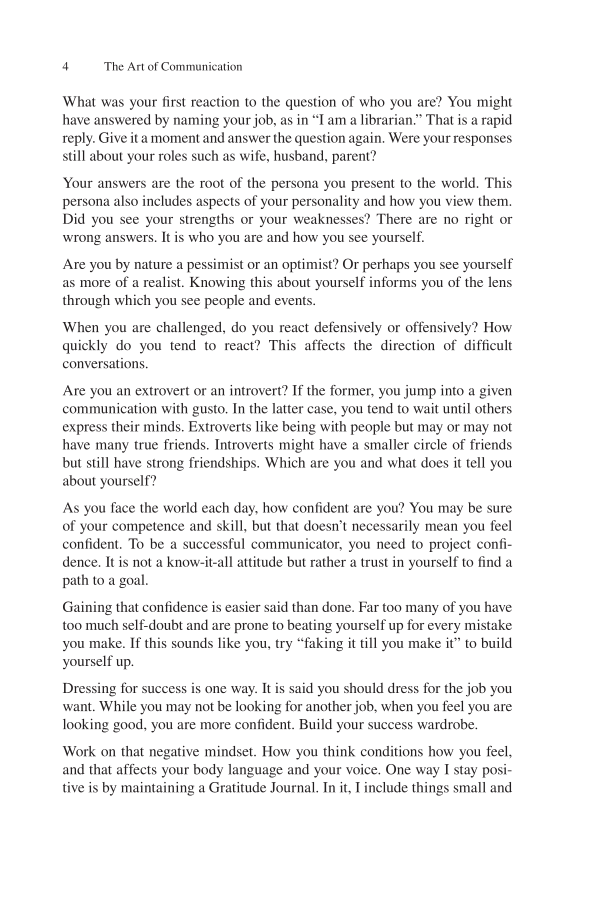4 The Art of Communication What was your first reaction to the question of who you are? You might have answered by naming your job, as in “I am a librarian.” That is a rapid reply. Give it a moment and answer the question again. Were your responses still about your roles such as wife, husband, parent? Your answers are the root of the persona you present to the world. This persona also includes aspects of your personality and how you view them. Did you see your strengths or your weaknesses? There are no right or wrong answers. It is who you are and how you see yourself. Are you by nature a pessimist or an optimist? Or perhaps you see yourself as more of a realist. Knowing this about yourself informs you of the lens through which you see people and events. When you are challenged, do you react defensively or offensively? How quickly do you tend to react? This affects the direction of difficult conversations. Are you an extrovert or an introvert? If the former, you jump into a given communication with gusto. In the latter case, you tend to wait until others express their minds. Extroverts like being with people but may or may not have many true friends. Introverts might have a smaller circle of friends but still have strong friendships. Which are you and what does it tell you about yourself? As you face the world each day, how confident are you? You may be sure of your competence and skill, but that doesn’t necessarily mean you feel confident. To be a successful communicator, you need to project confi- dence. It is not a know-it-all attitude but rather a trust in yourself to find a path to a goal. Gaining that confidence is easier said than done. Far too many of you have too much self-doubt and are prone to beating yourself up for every mistake you make. If this sounds like you, try “faking it till you make it” to build yourself up. Dressing for success is one way. It is said you should dress for the job you want. While you may not be looking for another job, when you feel you are looking good, you are more confident. Build your success wardrobe. Work on that negative mindset. How you think conditions how you feel, and that affects your body language and your voice. One way I stay posi- tive is by maintaining a Gratitude Journal. In it, I include things small and
Document Details My Account Print multiple pages
Print
You have printed 0 times in the last 24 hours.
Your print count will reset on at .
You may print 0 more time(s) before then.
You may print a maximum of 0 pages at a time.






























































































































































































































